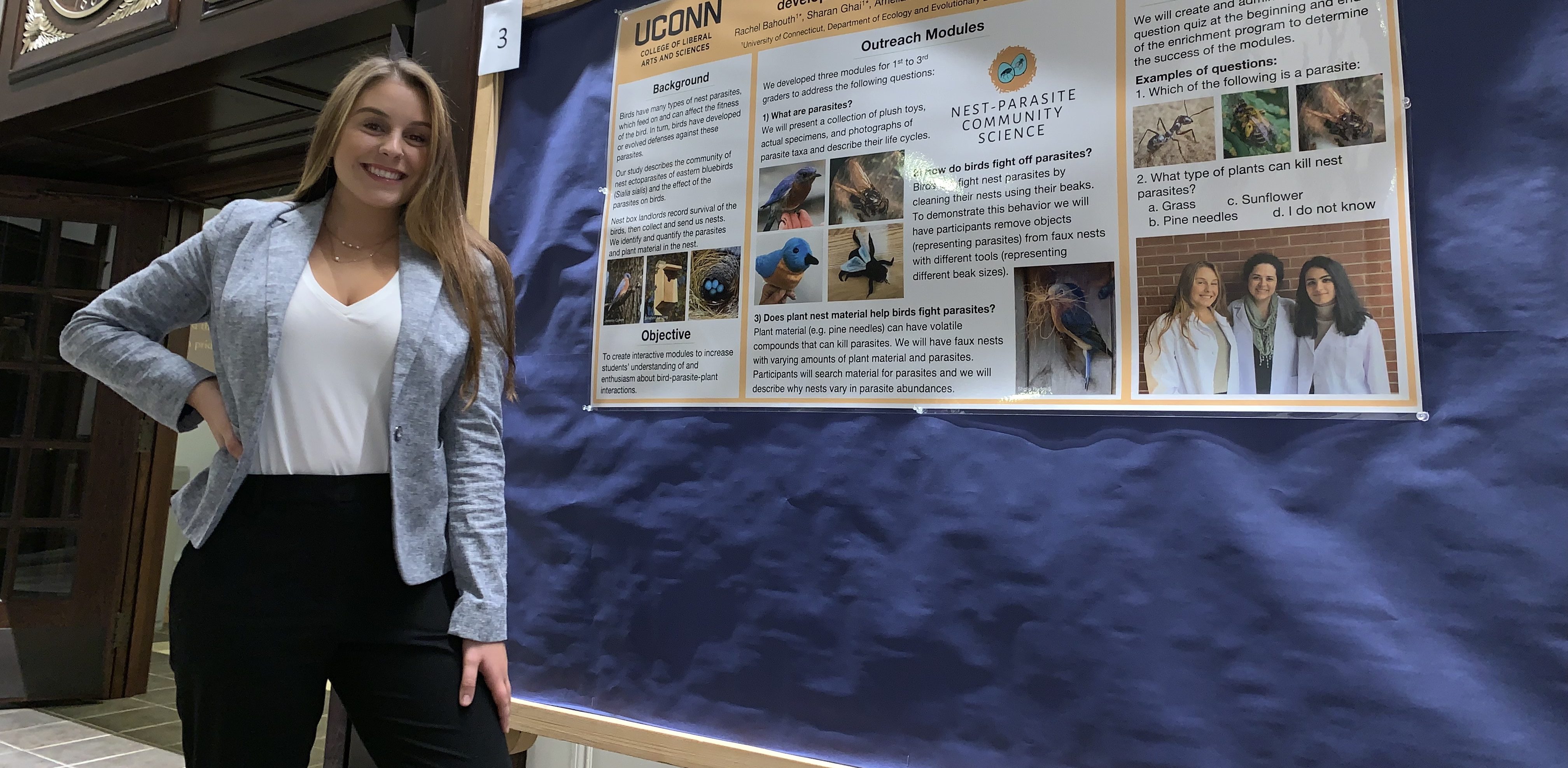UConn’s Office of Undergraduate Research each year provides Summer Undergraduate Research Fund (SURF) awards to support full-time undergraduate students in summer research or creative projects – an initiative that continues this year, despite the challenges presented by the COVID-19 pandemic.
SURF awards are available to students in all majors at all UConn campuses. A faculty committee representing various schools and colleges reviews the students’ project proposals, and SURF award recipients are chosen through a competitive process. Each SURF award winner is supervised by a UConn faculty member.
This summer, UConn Today will take a look at various 2020 SURF scholars and their work.
Name: Rachel Bahouth
Hometown: Wethersfield
Year: Rising Senior
Major: Biological sciences with a minor in communications
Summer research project: Bahouth is researching if food supplementation influences parasite community composition across the geographic range of Eastern bluebirds.
Can you tell us about the research you are doing this summer?
My study in particular is part of a broader study that was created by my advisor, Dr. Sarah Knutie (an assistant professor of ecology and evolutionary biology who oversees the Knutie Lab). The big project is called the Nest Parasite Community Science Study. The purpose of this study is to use citizen scientist-collected data to study the distribution of all different types of nest parasites from different box nesting birds, such as tree swallows and Eastern blue birds. So within this broader project, I am specifically studying how food supplementation influences host parasite interactions within the geographic breeding range of Eastern bluebirds.
How did you get interested in this research?
I had an internship in Westport last summer working for a lab and it was environmental science based and I really enjoyed my time there. It made me think that I probably wanted to focus on doing research on something that was more ecology and environmental science based, instead of something more related to medical field, which was my original intention. I reached out to different professors to see if they had opening in their lab and Dr. Knutie offered me a position after some interviews. I started with her in September of 2019 so it is coming up on a year working on this study.
How is research different than doing classroom work?
It is very different from the classroom setting. Working with research is much more hands-on, especially in Dr. Knutie’s lab. She is so great about teaching us how to do things, so we are independent within the lab. I have actually taken on a leadership role within the study, and manage other students that are under me. When they have a question, they can go to me instead of going directly to her. Research is a great way to figure out what you want to do after your four years at UConn are over. I think research is great way to expand your mindset and take advantage of all the different resources that UConn has to offer.
What will you do with the results of your research from the SURF grant?
I am going to continue this research into the fall when we come back to campus. It will continue through my whole senior year. I am also going to working on a peer reviewed manuscript to put my findings out there.
How has the COVID-19 pandemic affected your research?
It has definitely affected my research in terms of how I thought it was going to happen. I was originally going to be doing all my summer research on campus in Storrs in the lab and have everything right in front of me. Obviously, we are not all working remotely from home. I have a makeshift lab in my shed where I am doing my research. I don’t use any chemicals that are unsafe, so it is okay to work in the comfort of my own home. We are lucky that we have data to use from 2018 and 2019 from when the first study first started before COVID came.
What are your future plans?
That’s the million dollar question. I don’t want to go to graduate school just yet, so I want to find a job in environmental conservation and use my biology degree.



